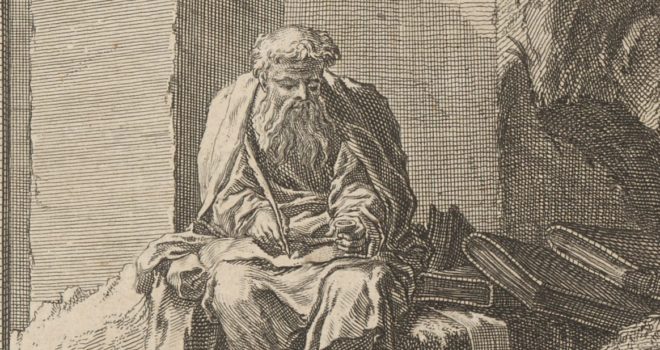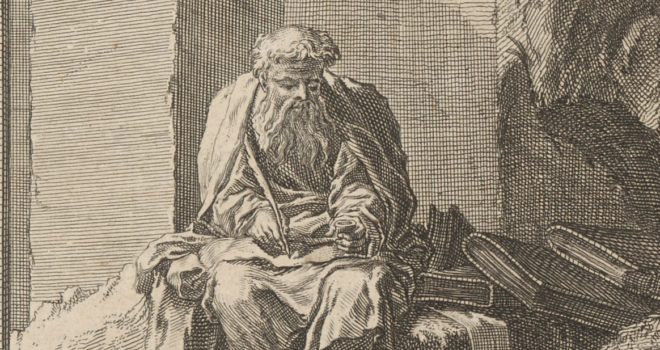St. Ephrem (306?-373) was a Syrian poet and theologian. He was born in the Mesopotamian city of Nisibis; because of his Christian sympathies, his pagan father forced him to leave home. Ephrem was baptized a Christian, and became famous as a teacher. In 363 the Christian emperor was forced to cede Nisibis to the Persians. Ephrem, along with many other Christians, thereupon migrated to Edessa (in modern-day Iraq), where he soon gained a reputation for scholarship, especially in the Scriptures.
Ephrem was ordained a deacon, though he later declined to be ordained to the priesthood. (According to one legend, he was also nominated as a bishop later in life. Feeling himself unworthy of this honor, he avoided it by feigning madness.) The Church in the fourth century was divided by many heresies and controversies. Ephrem opposed false teachings and forcefully upheld true Catholic doctrine.
His unique and effective approach involved writing hymns against the heretics of the day; he would take popular songs of such groups and, using their melodies, compose very beautiful hymns expressing true doctrine. Ephrem was one of the first to introduce sung music into Christian worship, thereby continuing a venerable Old Testament and New Testament tradition (and gaining a reputation as “The Lyre of the Holy Spirit”).
Ephrem also composed many other religious works, and after his death his writings were translated into Greek, Latin, and Armenian. In spite of his great fame, he maintained a simple and unpretentious lifestyle, living in a small cave outside Edessa. He died in 373, and in 1920 was declared a Doctor (an eminent and reliable teacher) of the Church.
Lessons
1. Jesus once said, “Whoever loves father or mother more than Me is not worthy of Me” (Mt 10:37). St. Ephrem was willing to give up his earthly family in order to belong to the family of God.
2. It’s been said that “whoever sings, prays twice.” Music and singing are powerful ways of expressing emotions — and Ephrem realized they can be a valuable form of worship and of proclaiming the truth.
Other Saints We Remember Today
- Sts. Primus & Felician (297), Martyrs
- St. Columba (Columbkille) (597), Abbott
✠
image: Sv. Ephraim by Michael Heinrich Rentz / Slovak National Gallery Europeana (Public Domain)














